On three occasions during my ‘career’ as an online critic and avenging angel I have deliberately pulled back from castigating a ‘target’.
In all three cases, I became concerned at what appeared to me to be the real possibility that the person whose actions and modus operandi I was criticising might do themselves physical harm as a result of the stress they were experiencing in response to my criticism.
In one case, a report reached me of an ugly and violent outburst of anger (including punching a hole in an office wall) at reading one of my columns. In another, it became clear to me from online responses that a property spruiker was not coping with having his dishonest marketing methods picked apart by me and his long trail of broken promises laid out for the world to see in all their shabby disingenuousness.
I had long ago reached the conclusion that I never want my words to be the final straw, the thing that impelled someone ‘over the edge’.
This may be a fine point, but it’s also been my deliberate practice to try to focus my criticisms on people’s hyperbolic marketing claims, on their demonstrable deceit and examples of gross hypocrisy and, most of all, on their actions — not so much on their character. But there’s no getting away from the fact that a pattern of behaviour does actually speak of someone’s character, in the end.
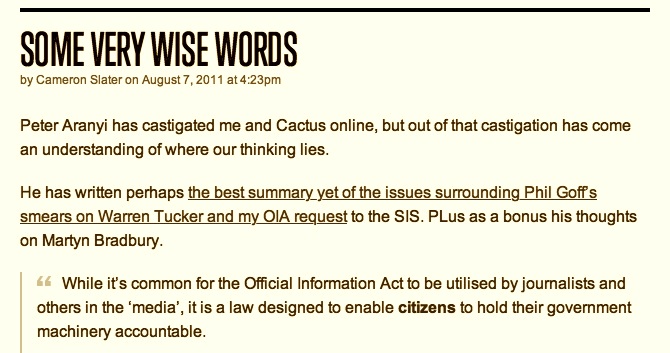
See? Even Cameron Slater appreciates a bit of castigation now and then. I had, of course, believed lies.
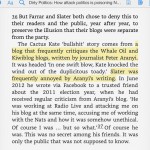 I mentioned before, in my response to Dirty Politics (here) that by one of those strange coincidences that make life such a rich tapestry, I had the … erm, interesting experience of reading some pages of Cameron Slater’s [allegedly hacked] Facebook messages to and from someone whom Nicky Hager described as Slater’s “trusted friend” (see right) – conversations wherein Slater expressed his displeasure and annoyance at being subject to criticism by me on this blog.
I mentioned before, in my response to Dirty Politics (here) that by one of those strange coincidences that make life such a rich tapestry, I had the … erm, interesting experience of reading some pages of Cameron Slater’s [allegedly hacked] Facebook messages to and from someone whom Nicky Hager described as Slater’s “trusted friend” (see right) – conversations wherein Slater expressed his displeasure and annoyance at being subject to criticism by me on this blog.
Now, sure, some of the language regarding moi was colourful, and some of it expressed a desire, if not a determination, to do me violence – but it doesn’t read to me as if Slater was in any real way driven to despair by my ‘castigation’ – not in the same way that the people I’ve just discussed above were.
It’s been evident to some of us for quite a while that Cameron Slater lives in a fantasy world. He often expresses himself as if he were some kind of hard-boiled tough guy with much more influence, potential, and day to day efficacy than he actually possesses. So to consider myself ‘at risk’ of physical violence from him seems a joke really. Indeed, whenever we run into each other, the conversation between us is invariably civil – and I expect it always will be, despite what he might say in the privacy (cough) of his Facebook conversations with “trusted friends”. Don’t be alarmed by this next statement: I think we have some things in common. (And that’s why I’ve accepted Cameron and Regan’s kind offer of the position of editor of Freed … nah, just joking!)
But is such online castigation ‘harmful’?
I’ve had a reason in the last few weeks to consider these and other aspects of “harmful digital communications” in relation to online criticism and truth-telling. I’ve also been considering again the mechanics of the nasty underground smear campaigns and “hit jobs” on public health scientists and campaigners apparently organised as part of the ongoing mercenary dirty PR operation Carrick Graham conducted through ghostwritten articles on Cameron Slater’s attack blog. (Still conducts? Probably. Sounds like it)
On Twitter the other night someone suggested that any online comment that caused “distress” to someone – whether true or not – could be caught under the definition of “harmful” communication in legislation due to pass through Parliament next week. It remains to be seen what the final form of the New Zealand legislation will be, particularly the ‘criminal offences’ parts, but people whose judgement I trust seem worried about restrictions on free speech and criticism.
The discussions certainly got me thinking about my own (minor) role in the blogosphere as a thorn in the side of various spruikers and malign influences like Carrick Graham, Slater and Simon Lusk. David Farrar generally plays too smart a game to attract anything like the public opprobrium his subterranean actions deserve (in my opinion) but Farrar’s day will come, I trust – ‘shouted from the rooftops’, Luke 12:3, remember.
I see myself as nobody special, I promise. But I have made a point of trying to tell the truth as I see it, to peel back the veneer where I can, and to do so in an accountable way. I muck it up sometimes, get things wrong. [For example, Returning to the scene of the crime (or How I fell for Jason Ede’s spin)] And there is no question that some of my commentary here at The Paepae and elsewhere can be said to have caused upset or distress. No question. I know that because people have made it clear – i.e. told me they’ve been upset and, in some cases asked me to stop it. (Case in point: Russell Beaumont.)
And while I don’t see myself as a cold-hearted bastard (I strive for empathy, truly I do) with a few exceptions I haven’t responded positively to a number of requests for me to “remove material” and commentary from The Paepae (either my own or that of visitors to the site). Even less so to threats. Neither have I taken particularly kindly to being told that I refer to certain people and their… let’s call it ‘villainy’ … in a negative way; or that I do so too frequently (whatever that means) for their tastes. Nobody is forcing them to read it, eh?
The likeable, intelligent and beautiful Cathy Odgers once described blogging as “an utterly useless waste of a person’s time“. (Quite an ironic comment, in the context of what we’ll discuss below.) More to the point, a blog is often merely a record of whatever the blogger finds interesting or mildly significant. It’s what the blogger has paid attention to – however fleetingly. This online medium encourages quick analysis, flights of fancy, and, in my own case, the ready expression of bugbears and bees in bonnets.
In most cases, a blog definitely isn’t a media institution like a newspaper (despite Slater’s recent efforts to brand his grubby attack operation ‘Way loyal media’). Without being silly about it, I think my own news background, plus the fact that I continue to work as a journalist, editor and publisher probably mean that I inevitably impose elements of that sensibility on to this blog in some respects. But not always. This site, The Paepae, is still a hobby. Update: I’ve thought about this more deeply, and concluded a better description of my intentions for The Paepae is: ‘self-funded, independent social, media and political commentary and reporting, with a focus on civil rights and consumer protection‘. I do regard some of what I publish here as journalism, particularly the longer form work, and that which follows themes. Definitely.
The twin-edged sword of ‘doing’ the Internet in my own name, rather than via a pseudonym like ‘Barnsley Bill’ or ‘Inventory2’ or ‘Queen of Thorns’ (all busted pseudonyms, ironically) works out for me OK, mostly — but not always. I’ve had to absorb a few blows, scratches and bites because I’m readily identifiable. Ouch. But it seems to me using a pseudonym exposes one to the threat of exposure, and, as discussed here (Potshots from behind a mask of anonymity are, by definition, cheap) using a pseudonym should constrain one’s commentary.
On the subject of pseudonyms, it’s worth remembering that Cameron Slater used to protect his identity and used the byline ‘Whaleoil’ in an ultimately futile attempt to do so. That, in a way (just, sort of) allowed for a cabal of writers (ghostwriters?) to be published under that nom de plume as a kind of collective voice. But when Slater switched to publishing posts written by others as if they were his own work, under his name well, he largely, in my view, flushed any credibility he might have been seeking to gain right down the toilet. That such ghostwriting was later exposed as commercially-driven mendacity by the revelations in Hager’s book makes it even worse.
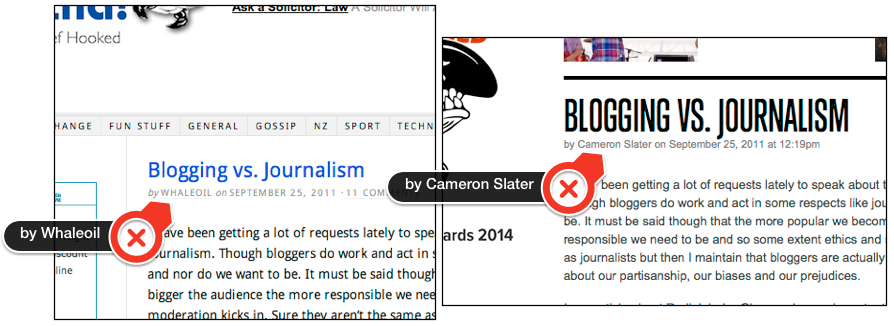
A for effort, but sadly another Cameron Slater TRUTH FAIL. With “by whaleoil” as a byline, writing by Simon Lusk, Carrick Graham, Cathy Odgers, even Jordan Williams could strike a pose as if it was from the Dirty Politics collective. But with “by Cameron Slater” as the byline, it just becomes another shabby little Slater Jnr lie, doesn’t it? (click to enlarge)
It’s hard to know from this distance how New Zealand’s proposed Harmful Digital Communications law will work. In response to my query, lawyer Graham Edgeler kindly and logically made the point (Storify as PDF here) that there’s a difference between a complaint being laid under the legislation alleging ‘harm’ … and that complaint being upheld.
Anyway, the potentially ‘harmful’ or distress-inducing things that are published here at The Paepae are a small percentage of what’s here. I hope you agree. For my own part, I’ve tried to never ‘whack’ at an undeserving target in making my criticisms. (That’s a judgement call, clearly.) And unlike the apparently commercial smear artists and character assassins Carrick Graham, Cameron Slater, Simon Lusk and Cathy Odgers, I’ve never done so for hire.
I was, and still am, incensed by what I read in Nicky Hager’s book Dirty Politics about the smear campaigns and deceptive ‘cash for comment’ ‘hits’ Cameron Slater’s attack blog carried out on public health researchers, trade unionists, industry groups and enemies of Carrick Graham’s shadowy clients.
The ‘no comment, move along, nothing to see here’ media management approach taken by Katherine Rich and lobby group NZ Food and Grocery Council (right) – in response to the documented evidence of deceit, and shabby use of Slater’s PR attack blog laid out in Dirty Politics – is risible, in my view, and unsustainable – no matter how busy the various co-conspirators have been with their document shredders and delete keys. It will all come out eventually. cf: ‘shouted from rooftops’ above.
Graham’s and Slater’s use of fake commenting profiles, sock puppets and pseudonyms on Slater’s website to personally lay grubby siege to sincere New Zealanders was disgusting to me, and seems unforgivable. That Carrick Graham appears to be grotesquely proud of his activities, characterising them as the new normal for PR (at least that’s what he seems to say in the recent North and South article about him, titled ‘Without Apologies’) seems to me to indicate a warped moral compass. But that’s just my opinion, based on what I’ve read of his ‘below the line’ work and others’. I’m sure Carrick, like Simon Lusk, is a fun-loving guy, a considerate driver, and extremely kind to children and animals he’s not hunting.
So, anyway, I try to be deliberate in my criticism, and don’t seek to be personally ‘harmful’ to anyone. I certainly do not seek to drive them to self-harm as a result. I know I am accountable for what I write. Which, in a roundabout way, leads me to Cathy Odgers and her attempt to re-write history.
Actions have consequences.
If, say, for instance, Cathy Odgers found herself under stress (or ‘meltdown’ to use the term someone telling me about these matters recently used) over being exposed as acting ‘inappropriately’ for a lawyer (a pretty high bar, or a low one? I can’t decide) well, that’s unfortunate, but that’s a consequence, surely?
If the exposure, through Hager’s book and the Chisholm inquiry, of the fact that Cathy was apparently ‘engaged’ to work Carrick Graham’s destabilisation campaign against financial regulators – on behalf of a failed businessman being investigated at the time by those same financial regulators – if the exposure of her actions led to repercussions, including loss of face with her Hong Kong law firm, a severing of her links with them, well, gee that’s tough. But wasn’t some of that inevitable?
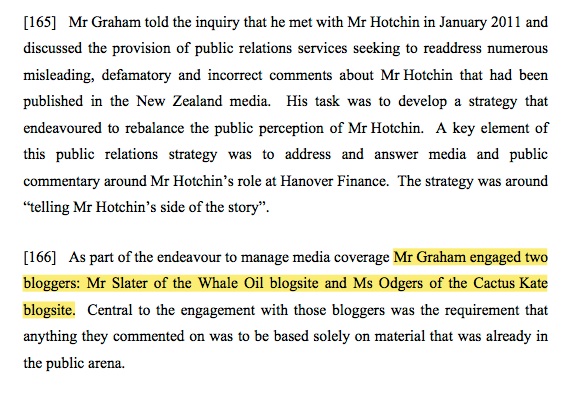
Justice Lester Chisholm finds Cathy Odgers and Slater were ‘engaged’ by Carrick Graham to do what turned into dirty PR for Mark Hotchin. (click to download the full Chisholm report)
Whatever her abilities as a dirty PR player, I have no reason to believe Cathy was anything less than a fully-competent ‘tax minimisation by the use of secret offshore trusts’ lawyer — but, to repeat: one’s actions towards others have consequences. Don’t we learn that in kindergarten? Which part of this am I misunderstanding?
If you don’t want it recorded, don’t publish it
Spin doctor Matthew Hooton has always struck me as a realistic person about these things. Matthew has faced negative repercussions for his actions, repeatedly, some of which (actions) he doesn’t seem to remember taking, or which he failed to recognise at the time might come back and bite him on the arse. I personally like Matthew, despite our differences. I also see him as a loyal person, which is a quality I always admire.
So it’s no surprise to me to see Matthew leap to Cathy Odgers’ defence over the argument, if one could call it that, about Cathy’s apparent determination to wipe the record of her past endeavours — and in particular, her AsianInvasion2006.blogspot.co.nz blog — from the face of the internet.
In her heyday, before conclusive proof emerged of her scurrilous dealings with Carrick Graham and his ball-boy Cameron Slater, Cathy was a sometime newspaper columnist. She was the darling of the right wing business paper National Business Review and even wrote occasional columns for mainstream media publications. But Cathy’s main claim to fame was her acid, often hilarious, always opinionated, now defunct Cactus Kate blog.
I’ve quoted from Cathy’s Cactus Kate blog here on The Paepae now and then over the years – oh, I just noticed, it’s still showing on my blogroll (that’s an old school thing where bloggers link to other blogs people might find interesting). A couple of years ago, Cathy deleted all the posts from her blog. Why?
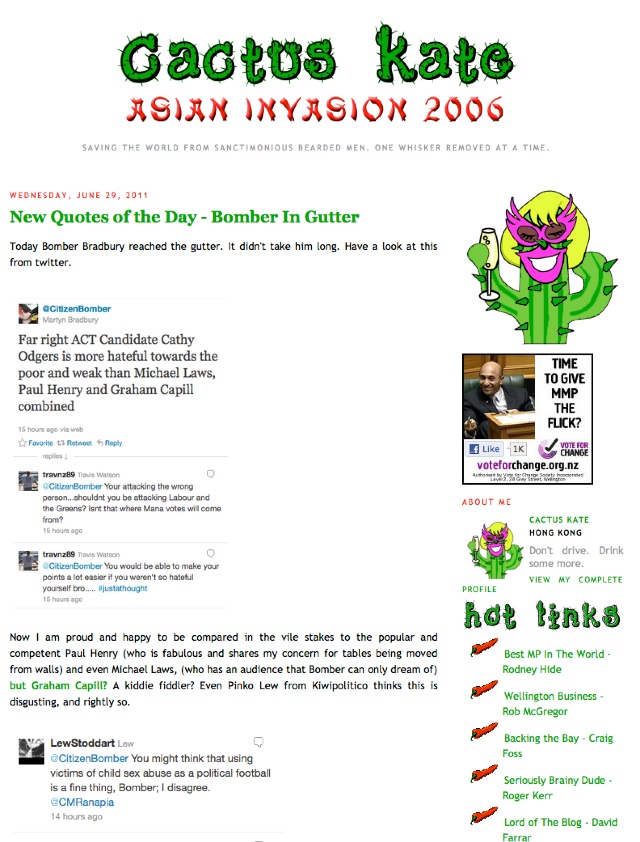
A typical post from Cathy Odgers’ blog — gleefully ‘whacking the left’. Why should these immoral, oops, immortal words be expunged from the National Library’s archive? Why on earth?
Well, the ‘why?’ question has excited considerable speculation. So too has Cathy Odgers’ move to apparently ask the National Library of New Zealand to remove [delete? hide from view? what exactly? not sure] its archive record of the Cactus Kate blog.
Let’s discuss this.
As a publisher, each time I publish a book, I send two copies to the National Library for what’s known as legal deposit (read all about it here) — they ask that we do it within 20 days of publication. When I first started publishing, the requirement was three copies — one extra for the Parliamentary Library, which always tickled my fancy, having worked in the press gallery. These days, as well as books, copies of each the New Zealand magazines I write for are routinely sent to the National Library (and you know what? Library staff read them, and compile a précis of bits of interest for their collection). The purpose, obviously, is to create a record of New Zealand publications ‘the documentary heritage of New Zealand’ — a National Archive — which, in my view, is undeniably A Good Thing.
The development and proliferation of online publications, like (cough) blogs, naturally needed to be addressed by our nation’s archivists.
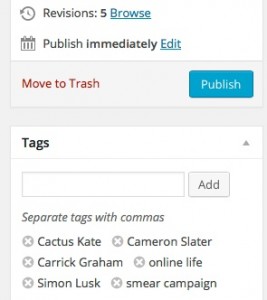 ‘Publication’ on the web carries no obligation for contributing to legal deposit, but the good thing is, the web is available to anyone with a computer and an internet connection. Yay! The publication factor is right there (look at the blue button, right. Read what it says).
‘Publication’ on the web carries no obligation for contributing to legal deposit, but the good thing is, the web is available to anyone with a computer and an internet connection. Yay! The publication factor is right there (look at the blue button, right. Read what it says).
So, doing their duty, our National Librarians have scooped up relevant internet publications (the term they use is ‘harvest’) including Cathy Odgers’ now apparently inconvenient blog and (blush) this lil ol’ blog too. I find that I can hold not a single objection to that situation.
So, what can Cathy’s problem be?
Well, she explained it like this in comments stream of her co-conspirator’s friendly PR attack blog (whaleoil link) which helpfully reproduced some Parliamentary questions and answers about the controversy. (Update: David Parker and Peter Dunne’s Parliamentary Q&A available here 1.3MB PDF)
Cathy said:
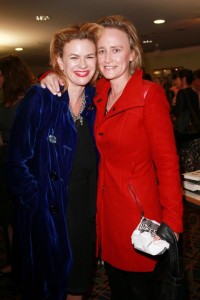
Cactus Kate political columnist and blogger Cathy Odgers (right) with journalist Deborah Hill-Cone. (pic: NBR/Twitter)
The Herald retracts items online all the time as does Fairfax i.e. The Jennings defamation episode.
Dunne’s answer never covered my argument – I’m a non resident and have been for 13 years now writing a blog from outside NZ. Who decides what overseas bloggers are archived? And under what section are non-resident works covered. For example if an American was writing a blog mentioning NZ politics or a NZer living in America would they archive it?
The Chisholm Inquiry had full access to the archives because the DIA runs the archives and also did the Inquiry (also I gave them access), as presumably does the Police if they want to see all the perfectly legal posts I made in those four years.
That the Department’s legal advisors have taken nine months to get to this point says to me there’s more issues at law than a simple interpretation of the Act and more blow arse petty nonsense from left wing bloggers who are now trying to use Parker to heavy public sector employees while those employees follow their decision making processes.
Now it’s human nature to back your friends. It’s a lawyer’s nature (quite a different thing) to look for loopholes and arguments and to use threats to exert pressure on people to try to get her way.
I’m not impressed with Cathy Odgers’ self-serving attempt at censorship/expunging of the historical record. Cathy has clearly been a minor New Zealand celebrity and person of media and political influence, despite her flimsy protestations of ‘non-residency’. For instance, as a small example, in addition to her newspaper columns, she was a supposedly influential member of the right wing ginger group ACT Party, even considered for nomination as a candidate (left). ‘Non-resident’? Pfft.
I read Cathy’s published stuff, both online and in various dead tree publications, when it was published, as noted. I think the National Library was and is perfectly entitled to hold its archive of her published stuff, and to make that archive available to the public, not just accredited researchers.
I wouldn’t dream of asking the National Library to remove books or magazines from legal deposit. Who would? As I see it, our publications are our individual track records (for good or for ill) – and they belong to the nation, as a part of its documentary history. Same with the archive of internet publications.
It’s a shallow and unconvincing argument, in my opinion, for Cathy Odgers, Matthew Hooton and others in their cabal to try to frame this as a ‘privacy’ issue. I say this: If you don’t want it recorded, don’t publish it.
But as always, I’m open to hearing an opposing point of view.
– P


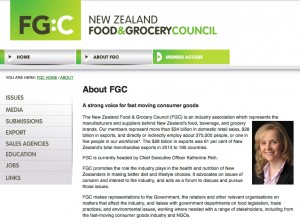
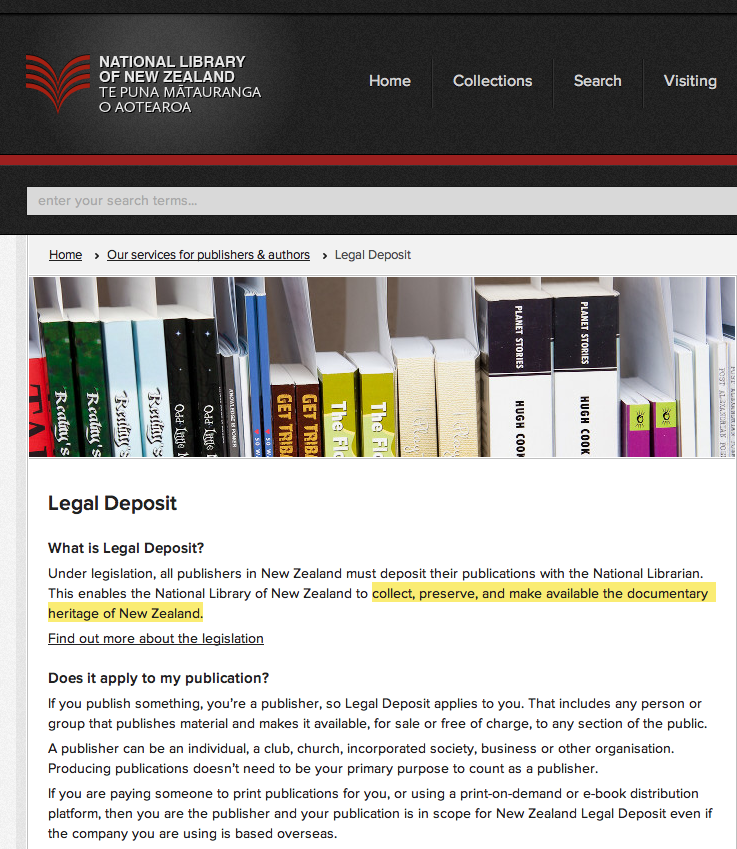
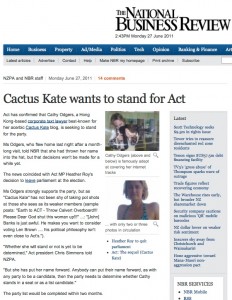

At the weekend I came across (in my messy office) one of the best articles I’ve read about operating with depression.

I had archived it, and you can read it here: (Searchable PDF 2.8MB)
—
Also, here’s a writer I respect greatly, Jeff Bercovici, describing his experience …
Why We Need to Talk More About Mental Illness in Tech and Business
As I said in my post above, I reckon I’ve been close two or three times.
– P
Fear not Peter there’s always the Wayback Machine (or am I foolishly teaching you to suck eggs!?)
https://web.archive.org/web/20121023092007/http://asianinvasion2006.blogspot.co.nz/
btw, one can easily prompt page scrapes into the archive: https://help.archive.org/hc/en-us/articles/360001513491-Save-Pages-in-the-Wayback-Machine
Thank you for your efforts